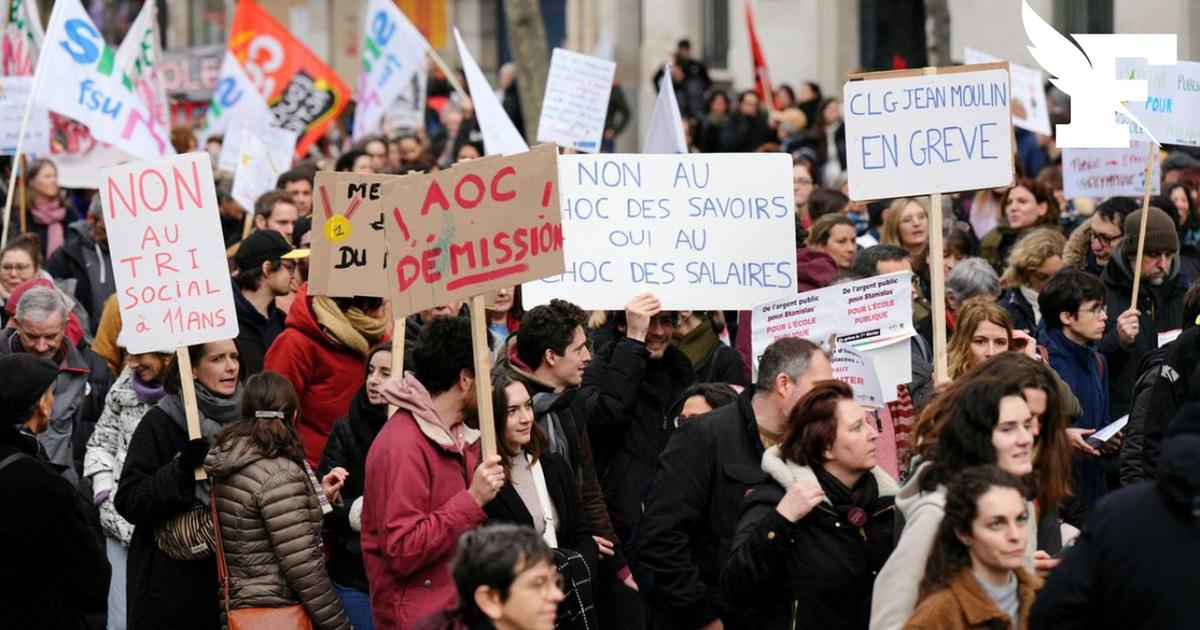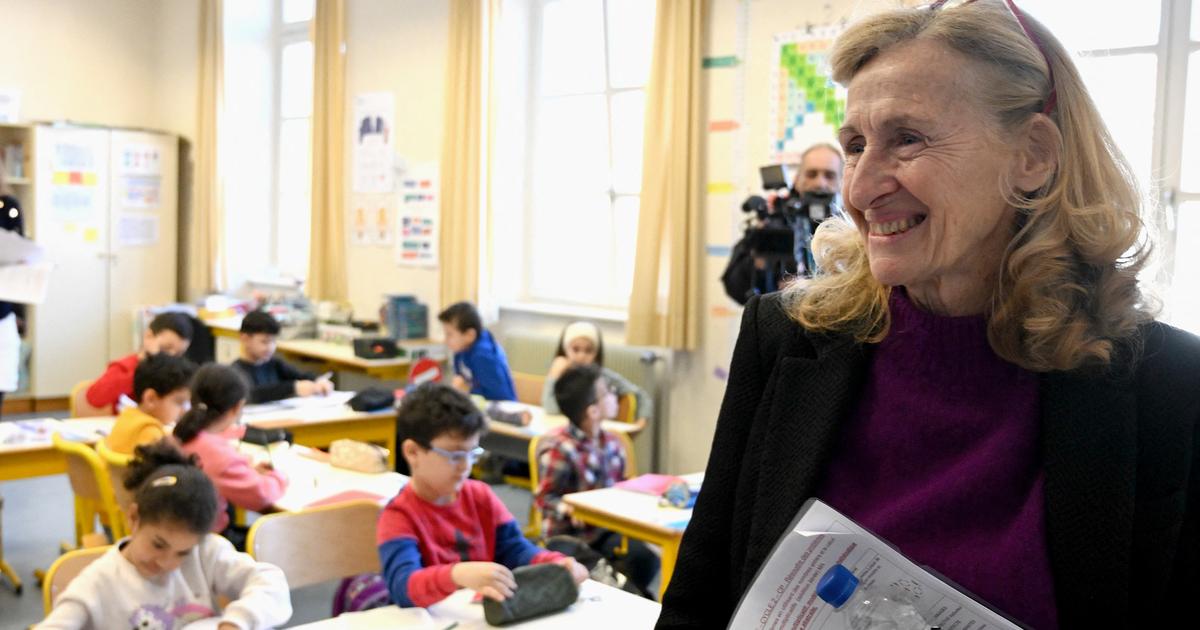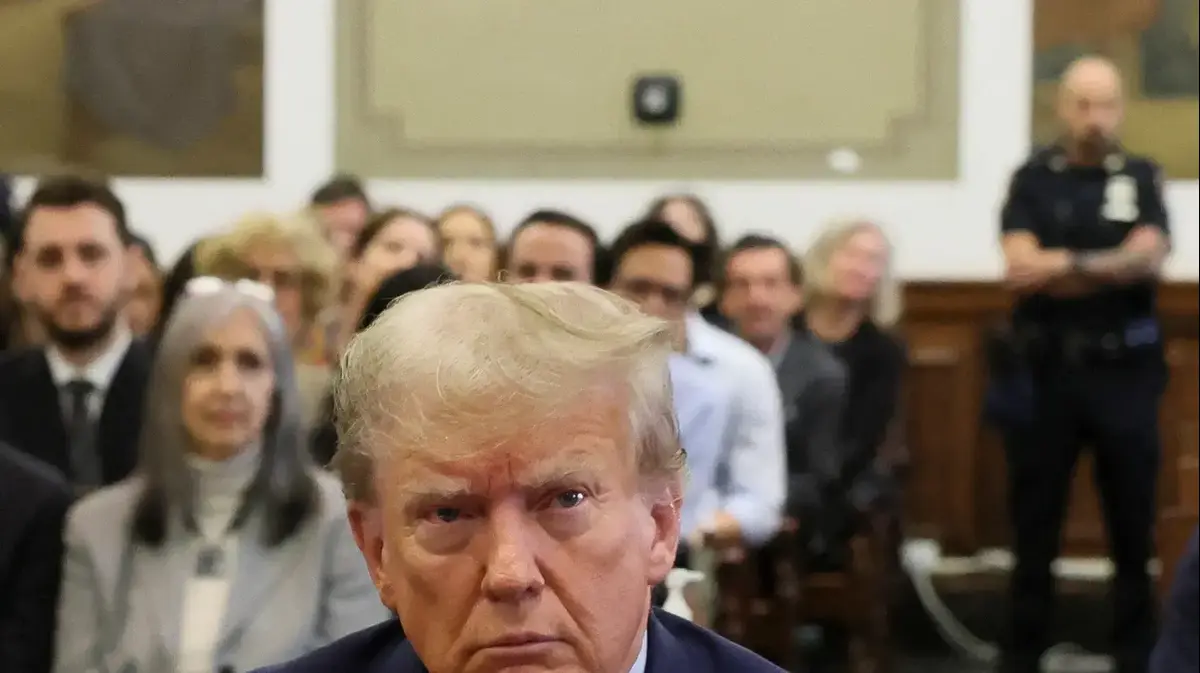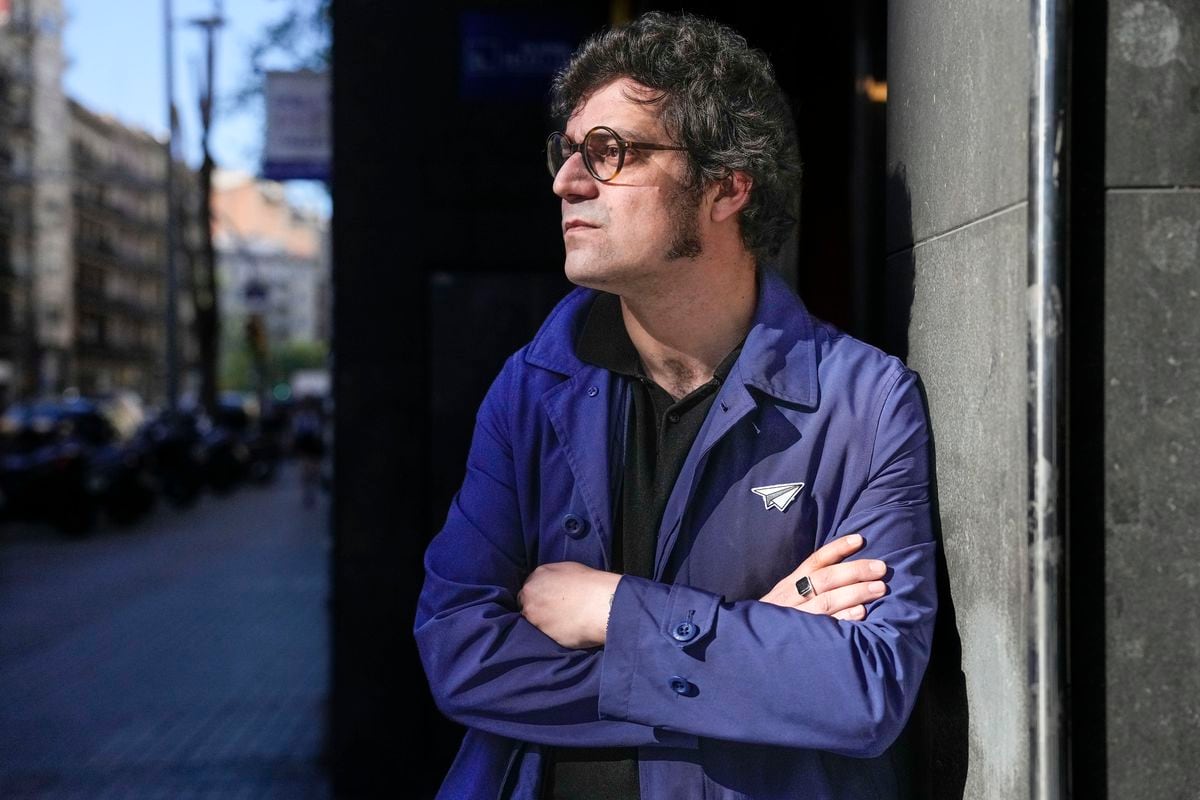The Collectif PASS 2020-21 Université de Paris is a collective of medical students at the University of Paris committed against the reform of medical studies which came into force at the start of the 2020 academic year.
Months pass, and the reform is still in place, a few thousand new 1st year medical students will join the sacrificed generation of the 2020-2021 academic year.
Read also“The new reform of medical studies is a disaster for a whole generation of students”
The President of the Republic, initiator of this reform, is re-elected.
He is now free to tackle other fields of study, and to reach his holy grail, orals at all levels, orals in all areas!
The lover of theater and public speaking will be satisfied, he will have left his mark, oral.
During the big debate, he welcomed his reform, the end of the numerus clausus, without mentioning the new terms of access.
Why go into details?
The French cannot understand, too much subtlety.
The cantor of meritocracy wants to give back their place to young people, to give back to France its scientific excellence.
We have seen the result, at our expense, at the expense of hundreds of deserving medical students sacrificed.
We were gathered at the Administrative Court of Paris for a hearing on the “merits” of this affair, the medical students robbed of their second year against the University of Paris.
Frederic Bamas
Far from the oral contests of the President, our medical students at the University of Paris continue to fight against injustice, and continue to hope that there is indeed justice.
This Tuesday, April 19, 2022, we were gathered at the Administrative Court of Paris for a hearing on the "merits" of this case, the medical students robbed of their second year against the University of Paris, or rather from now on the University of Paris- Cited.
The room was full, many students, happy to be together and who felt united by this fight, parents proud of their students and a few journalists.
Small hubbub due to the lifting of the crowd when the judge and his advisers arrived, then silence.
The clerk lists the names of the students for several minutes, scratching some of them, then comes the time for the conclusions of the public rapporteur.
Unfortunately, after a few minutes, it seems clear that he only read the university's defense brief, paraphrasing it for 10 minutes to conclude with the rejection in the name of the sovereignty of the jury.
There is nothing to judge.
Circulate young people, how dare you attack a sovereign jury like this?
The room is taken aback.
We knew that the university treated us with arrogance and contempt from the beginning, we were prepared for it, but we did not imagine that it could be so with a representative of justice.
For the public rapporteur, it was not a question of defending the facts for which we reproached the university, nor even of denying them,
but to say that, whatever happened, he shouldn't be judged.
Thus, for 10 minutes, his head fixed on his few pages, the rapporteur read to us, sometimes with difficulty, a summary of the university's defense memorandum.
By taking up all the case law indicated by the university, not one more, not one less, by taking up all the fallacious arguments of the university, the public rapporteur stunned the room.
The floor is then given to our lawyer, the excellent and pugnacious Maître Bellanger.
With vigor and precision, head held high, looking at the judge and his advisers, vehemently challenging the public rapporteur, he took up our file point by point for more than 30 minutes.
A file that the public rapporteur had probably not read, and which, it seems, did not interest him because, despite the words of Maître Bellanger, he seemed drowsy.
The judge and his advisers listened attentively, impassively, and taking many notes.
Master Bellanger continued, waking up the public rapporteur at times, the room was silent, attentive, captivated.
All the elements of the file were listed and explained.
Thus were mentioned the modifications of the rules, after the examinations, by the dean himself,
modifications corroborated by university writings.
Maître Bellanger then evokes the lack of preparation of the students for the oral test, their only preparation having been a 1h30 webinar, a webinar during which the students will have learned not to chew gum, to say hello and goodbye.
Then he mentions the modification of the modalities of the oral test, a few days before the start of the session, to simplify the test, according to the university.
The enumeration of the university's shortcomings continues with the evocation of the lack of preparation of the oral examiners, the evaluation sheets imposed by the university on the examiners, which they discover on the day of the exam, a system aberrant notation with imposed marks: 1, 7, 14, 20. We evoke the
lack of a common meeting to prepare the examiners, give them a framework, instructions.
Mention is made of the lack of harmonization of the marks between all the 14 groups of juries, thus generating a strong inequality.
All these elements are proven by various writings and documents from the university on file, which the public rapporteur will undoubtedly have omitted to consult.
The deplorable conditions of the organization of the oral are enumerated, analyzed, supported.
and which the public rapporteur will undoubtedly have omitted to consult.
The deplorable conditions of the organization of the oral are enumerated, analyzed, supported.
and which the public rapporteur will undoubtedly have omitted to consult.
The deplorable conditions of the organization of the oral are enumerated, analyzed, supported.
It therefore remains to be hoped that justice will be able to restore meaning, that it will have the courage to take the decision to reinstate the students in the second year of medicine, that it will condemn the university for its amateurism.
Frederic Bamas
The time has come to mention the extravagant importance of the oral examination put in place by the University of Paris-Cité, which is akin to a manifest error of assessment.
Master Bellanger comes to life, and again wakes up the public rapporteur “
72% of the final mark!
Are we in this country gone mad!
Why ?
Because this test in no way relates to a field of health, it is the university itself which avails itself of it and which prides itself on it by telling us
"
I had the right
"
and the public rapporteur, who follows them, effectively tells us that it was
"
lawful
"
, it did not come to sanction any skill acquired during the year, 20 minutes of oral for 72% of the final mark!
While at the same time you had 14 hours of written tests, 158 hours of lectures, 8 months of work, days and nights, without weekends, without holidays.
After this strong moment, we are galvanized, our hearts race, all this injustice suffered by the students comes to the surface.
Maître Bellanger concludes his remarks by asking the court to render a legal decision commensurate with the challenges of this case.
It is a question of canceling the decision of non-admission for these cheated students, of reintegrating them into the second year of medicine, of limiting the impact of this decision so as not to question the students currently in the second year.
It is up to the university lawyer to conclude the hearing, a 5-minute intervention is enough for her.
She begins her remarks with the evocation of a reform to be perfected but which is in no way illegal.
The university would not have made any mistake, it would have respected the texts, and if we are in court, it is just a misunderstanding.
The students did not understand the meaning of the reform, they did not understand its application by the University of Paris-Cité.
And even if the university cannot be thus judged by a court, all the facts which are reproached to it do not take into account two principles: the sovereignty of the jury and the impartiality of the jury.
Thus, these two principles would exonerate the university from any error of assessment,
for any violation of its own regulations and the education code.
These two principles would be a blank check against all turpitude, all abuses.
It therefore remains to be hoped that justice will be able to restore meaning, that it will have the courage to take the decision to reinstate the students in their second year of medicine, that it will condemn the university for its amateurism and its incompetence, but also for his arrogance, his certainty of being above the law.
This reform of health studies leaves speechless a medical world hard hit in recent years.
Frederic Bamas
This is how the selection of future doctors is made in the enchanted world of the president and his minister Madame Vidal.
Some media and politicians have seized it, but not the government, which prefers to reflect on a new systemic reform, boosted by the new magic potion of education: “The oral”.
This reform of health studies leaves speechless a medical world hard hit in recent years.
The youthful dreams of hundreds of deserving students were shattered on the altar of the “absolute oral”.
We have to face the facts, we will no longer have a Nobel Prize in Medicine, so let's create the Nobel Prizes for incompetence, injustice, and arrogance.
The suitors are already there.
Alas!














